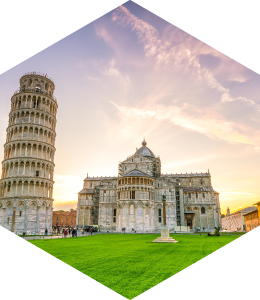As with all languages, we work with native-speaking, subject specialist Italian translators to support clients in all areas including financial services, legal, insurance, medical and across the broader business landscape.
We work to ensure every aspect of our Italian translation service is accurate, secure, professional, and fast. Your project will always be completed by Italian translators who are qualified professional linguists who have been in the industry for many years.
 With over 500 translators in our network, we are able to offer translation services from 150 languages into Italian.
With over 500 translators in our network, we are able to offer translation services from 150 languages into Italian.
Italian plays a significant role in business and other sectors with Italy being one of the most important economies in the world.
Our native Italian translators have the experience of industry-specific technical terminology and jargon that will allow them to be able to translate all types of documents accurately while ensuring the translation sounds natural in Italian.
We take great pride in being able to deliver the most accurate Italian translations time after time.
Italian is the official language of Italy and Switzerland and spoken by over 90 million people worldwide.
As the fourth most common first language spoken in the European Union, and the official language of one of the world’s top economies, Italy, it’s a no brainer that if you’re serious about business on the European continent, then you need to know this language.
Italian Language Facts
- There are only 21 characters in the Italian alphabet. J, k, w, x, and y characters are missing from it, they are not part of Italian.
- According to the Italians, the longest Italian word is 26 letters in the precipitevolissimevolmente and means to you as fast as possible.
- Various dialects of Italian have been around for centuries, it wasn’t until Italy unified that a standard version of the language emerged. In 1861, only about 2.5% of Italy’s population could speak what is now known as standard Italian.
- The word “volt” comes from an Italian inventor. Everyone knows that Thomas Edison invented the lightbulb, but his invention would be useless if it weren’t for Alessandro Volta, who discovered electricity. “Volt”, the standard measuring unit of electricity (in both English and Italian), comes from his name.